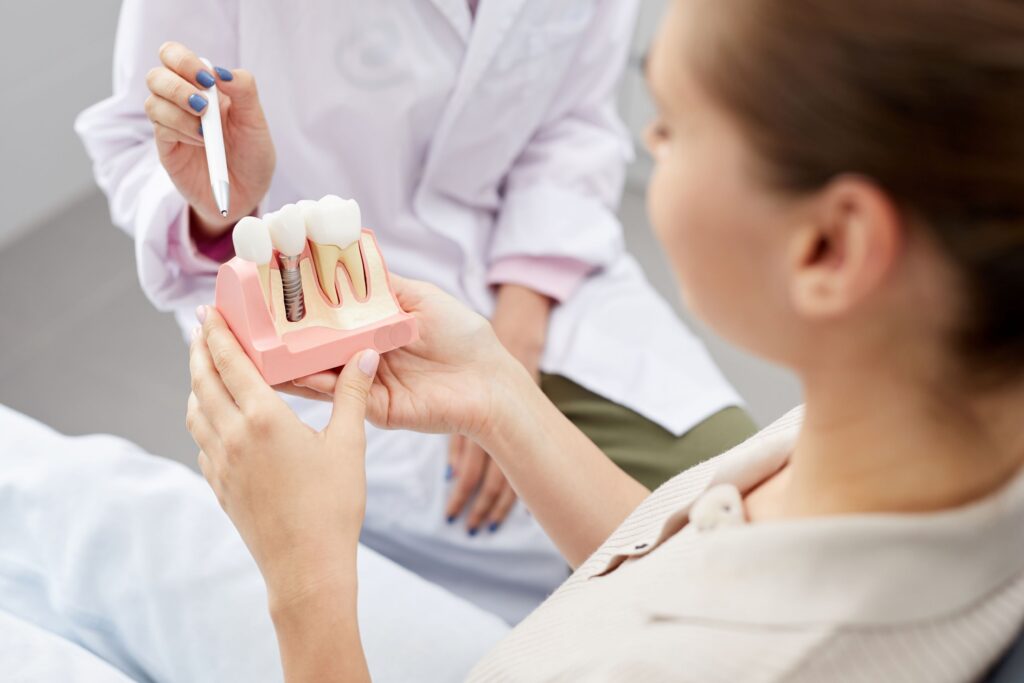
Tooth loss can impact your daily quality of life in several ways. For example, you might develop a slur or a lisp without two complete arches, or struggle to bite or chew wholesome foods to support your overall health.
Many experts consider dental implants the ideal way to replace missing teeth because they include a titanium rod that’s embedded in your jaw to function like a root. However, if you’re vitamin D deficient, you might not be approved for the procedure. Continue reading to learn why and how to increase your vitamin D!
What is Vitamin D?
Vitamin D, also known as calciferol, is a fat-soluble vitamin that is essential to your body’s ability to grow healthy teeth and bones. Although it also helps regulate muscle function and supports your immune system, it primarily regulates your body’s calcium and phosphorus levels. It enables you to absorb these ingredients from the foods you eat when they reach the digestive tract, so you can use them to produce and maintain strong bones and teeth.
People without enough vitamin D can develop bone disorders like osteoporosis, fatigue, muscle weakness, and an increased risk of infections, including gum disease.
How Does Vitamin D Support Dental Implants?
Many people don’t realize that getting dental implants requires a few appointments over several months due to the oral surgery. Once the titanium rod of your restoration is placed in your mouth, it can take three to six months to heal because your body must complete a process called osseointegration before your dental crown can be placed.
Your jaw produces new bone growth every time you bite down until eventually enough is generated to fuse with the metal, making it a permanent part of your smile. However, if you’re vitamin D deficient, your body might not be able to produce enough new bone material to complete this stage of recovery successfully. Your implant might not have a strong enough foundation to remain in place and could fail.
How Can I Get More Vitamin D?
This essential nutrient is found naturally in certain foods, like fatty fish, egg yolks, or products like milk, cereal, and orange juice that are sometimes fortified with it. You can also find it as a supplement at many stores and pharmacies.
However, it might be easier to increase your vitamin D levels by spending more time outdoors. Your body produces it when your skin comes into contact with the ultraviolet rays of the sun, and a 15- to 20-minute walk outside on a bright day during peak hours is all you need.
Thankfully, a quick blood test with your doctor or dentist can reveal your vitamin D levels to help determine whether you’re a good candidate for dental implants!
Meet the Author
Dr. Evan Pedersen is passionate about helping people build the most beautiful and healthiest versions of their smiles. He earned his Doctor of Dental Medicine degree from the Harvard School of Dental Medicine and then began private practice in 2013. Today, he has more than a decade of experience offering a complete menu of services to meet all your needs under one roof. He collaborates with the best local specialists to ensure accurate dental implant placement, then provides resilient, lifelike restorations to rebuild your smile. You can request an appointment on the website or call (512) 777-0866.
